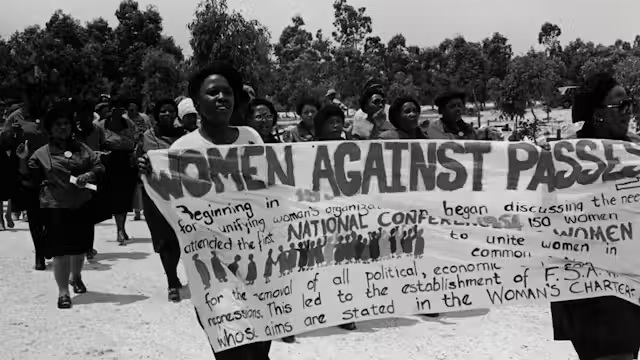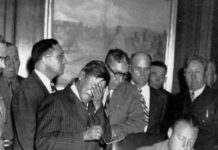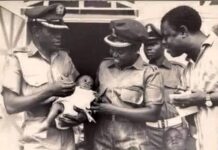Travel as Activism: Stories of Black women who defied apartheid’s borders
For Black South Africans under apartheid, the simple act of moving across towns or borders was a political statement. Travel was heavily policed, particularly for women, who were described by writer Lauretta Ngcobo as occupying the “rock bottom of the racial pile.”
The apartheid government, in power from 1948 until 1994, perfected laws that restricted mobility. Pass laws extended into the 1950s, targeting Black women with new intensity. Travel abroad was weighed down by bureaucracy, costs, and state scrutiny.
For working women in growing industrial towns, these restrictions were not just personal frustrations; they were symbols of wider injustice. By resisting, they connected daily struggles to national liberation and began using mobility as a weapon of activism.
A landmark step came in 1954 when women across racial divides founded the Federation of South African Women (FEDSAW). They drafted the Women’s Charter, which fed into the Freedom Charter of 1955, one of the defining documents of the anti-apartheid struggle. Both texts upheld freedom of movement as a basic right, even though it was denied for decades.
Through high-risk journeys, these women acted much like what journalist Mahvish Ahmad later called a musāfir: an ‘activist-traveller’ who ventures into hostile environments to open ground for others. In this compiled list by The Oasis Reporters, their writings, letters, speeches, memoirs, show that their journeys were not leisure, but resistance.
READ ALSO: “No tears. Just win. And don’t wear black when I die” – The story of Capt. Tamuno
Elizabeth Mafekeng
The president of the Food and Canning Workers’ Association was denied a passport in 1955, yet she disguised herself as a domestic helper to board a plane abroad. Determined to attend the World Conference of Workers in Bulgaria, she went on to visit Poland, Czechoslovakia, the Soviet Union, and China. She later remarked that she had “seen the way people should live in the world” without race as a barrier.
The apartheid state retaliated by making her the first woman sentenced to political banishment. Mafekeng responded by fleeing with her two-month-old baby to Basotholand, today’s Lesotho.
Lilian Ngoyi and Dora Tamana
Ngoyi, a garment workers’ leader and president of the ANC Women’s League, together with Dora Tamana, first attempted to leave South Africa under “European names” but were arrested. On a second attempt, armed with affidavits, they successfully travelled by air through Uganda, Italy, and the Netherlands, reaching Switzerland for the World Congress of Mothers in 1955.
There, they forged solidarity networks that would strengthen Fedsaw and the ANC Women’s League. Upon their return, Ngoyi and Tamana became central figures in the famous 1956 Women’s March of 20,000 women on Pretoria against the pass laws.
Frances Baard
Baard rose from domestic service to become a trade union organiser and activist. She helped present the petition from the 1956 march to government authorities. Despite constant harassment, imprisonment, and eventual banishment, she travelled widely inside South Africa, uniting factory and domestic workers in the struggle.
In her memoir, Baard reflected that though she was confined physically, her mind and spirit remained free: “Even though they ban me… my spirit is still there… free.”
Florence Mophosho
Mophosho was among the few women who carried the ANC struggle into exile. Based in Tanzania during the 1960s, she travelled extensively for the Women’s Secretariat, representing both South African women and the global movement for emancipation.
READ ALSO: Sarah Forbes Bonetta: The African slave girl who became Queen Victoria’s protégé
She maintained that international travel was essential not only to secure South Africa’s political freedom but also to advance women’s rights worldwide, an argument that sometimes placed her at odds with male colleagues in the movement.
Emma Mashinini
By the 1980s, apartheid loosened some travel restrictions, yet repression remained. Mashinini, leader of the Commercial, Catering and Allied Workers Union, undertook what she called “a hundred and one travels” to mobilise at home and abroad.
Her activism brought severe punishment. In 1981, she was imprisoned in solitary confinement for six months, accused of overreaching the limits of a Black woman’s role. She later insisted it was her country, and she would come and go as she chose.
For these women, travel was never ordinary. Each journey meant breaking apartheid’s rules, risking arrest, or facing exile. But it also meant claiming agency, building networks, and returning with ideas that energised the liberation struggle.
Their insistence on mobility reframed movement as a political right worth fighting for. They carried not only themselves but also the hopes of a people, advancing step by step toward freedom and equality.
Follow the Neptune Prime channel on WhatsApp:
Do you have breaking news, interview request, opinion, suggestion, or want your event covered? Email us at neptuneprime2233@gmail.com





